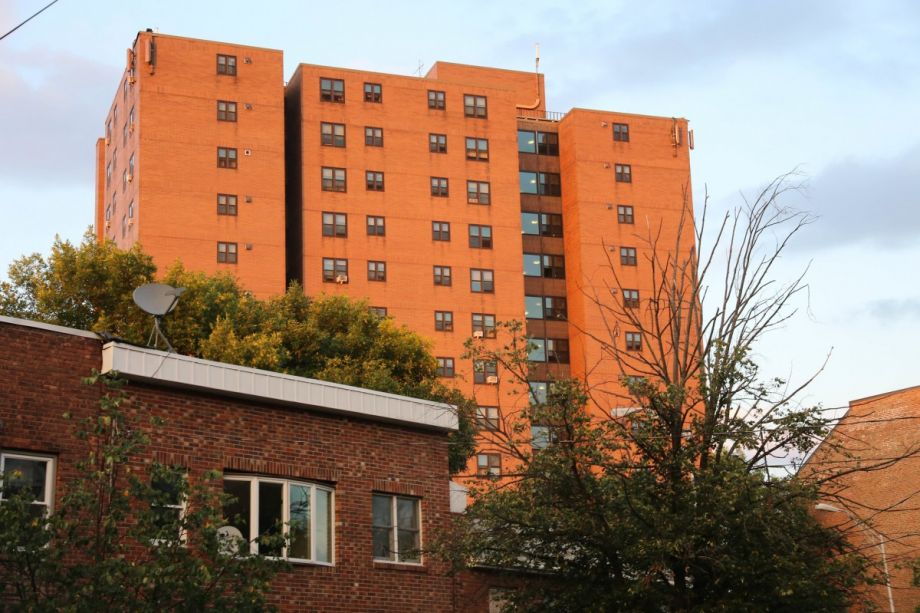

(Photo by Paul Sableman / CC BY 2.0)
San Francisco Advocates Sue City Over Encampment Sweeps
Advocates and people experiencing homelessness have sued San Francisco over its sweeps of homeless encampments, the San Francisco Chronicle reports. The lawsuit was filed by the A.C.L.U. and Lawyers’ Committee for Civil Rights of the San Francisco Bay Area on behalf of the Coalition on Homelessness and seven unhoused and housing insecure plaintiffs. It calls on the city to disband its Healthy Streets Operation Center, the city’s “command center” that coordinates sweeps with police and provides outreach at encampments. The lawsuit asks the city to divert money spent on enforcement to affordable housing. It accuses the city of repeatedly violating Martin v. Boise, a Supreme Court ruling which makes it illegal to enforce bans on sleeping in public places if there is no adequate shelter nearby.
The Coalition previously released a report on the Healthy Streets Operation Center alleging that the city was routinely violating Boise and destroying property owned by people living in encampments. Plaintiffs in the lawsuit support those claims; they say they have had prosthetic limbs and a relative’s ashes thrown away during an encampment sweep. One plaintiff whose Macbook was thrown away in a sweep was subsequently awarded $9,000 by the city, the Chronicle reports.
Report: Disinvesting In Public Housing And Relying On The Private Market Hurt Renters
A new report from Human Rights Watch looks at the decades-long disinvestment in public housing and how a shift of housing subsidies to the private market hurt low-income renters. The federal government has drastically reduced funding for public housing since the 1990s, leading to a backlog of repairs requiring tens of billions of dollars. Hundreds of thousands of units have become derelict or been razed since then. In 1998, Congress passed the Faircloth Amendment, which restricted the construction of new public housing.
The federal government has instead increased funding for tenant-based vouchers, which allow renters to pay no more than 30% of their income on rent in privately-owned units, with the government paying the rest. But the report found tenants with these types of vouchers face source-of-income discrimination from landlords, limiting the pool of potential apartments. There are also limits to the government’s subsidy, which is restricted to what HUD calculates is a “fair market rent,” a dwindling amount of units as rents rise. And rents in the private market have increased dramatically over the past 15 years, leading to more instability for low-income tenants than would exist in public housing. The report calls for more robust federal funding and an overhaul of government voucher programs.
Los Angeles Returned $150 Million In Federal Housing Funds
The L.A. Times found that city and county housing had returned $150 million in federal grants meant to address homelessness between 2015-2020. The funds were returned by the city’s public housing agency, its homeless agency and the county’s affordable housing agency. About 85% of those funds were meant for permanent supportive housing, which is income-restricted housing with on-site social supports often reserved for people exiting homelessness or people with mental health needs. Agencies said they did not use the funds due to landlords’ unwillingness to rent out units to voucher holders, a tight housing supply and HUD’s own program restrictions. But the Times also found that L.A. County could have provided project-based supportive housing vouchers for more low-income units by waiving some of HUD’s requirements, but failed to do so.
Colleges Are Struggling To House Students
College students are having a tough time finding housing in a tight market this fall. The L.A. Times reports that about 9,400 students across the University of California system were denied campus housing due to a lack of space. The Times found the numbers have improved since last year due to Covid restrictions being curtailed, as students are once again being doubled and tripled up in dorm rooms. As rents skyrocket on the private market, campus housing is more and more coveted by students and parents, particularly in California where the U.C. system keeps housing 30%below market rents.
The Nashville Scene reports that many Tennessee State University students are living in hotels this semester. The school, an HBCU, is facing the same housing shortages as other colleges while also experiencing an uptick in applications, a national trend at historically Black colleges. TSU has placed over 1,000 students this year in hotels and fewer than 100 are on a waitlist, Nashville Scene reports.
This article is part of Backyard, a newsletter exploring scalable solutions to make housing fairer, more affordable and more environmentally sustainable. Subscribe to our weekly Backyard newsletter.